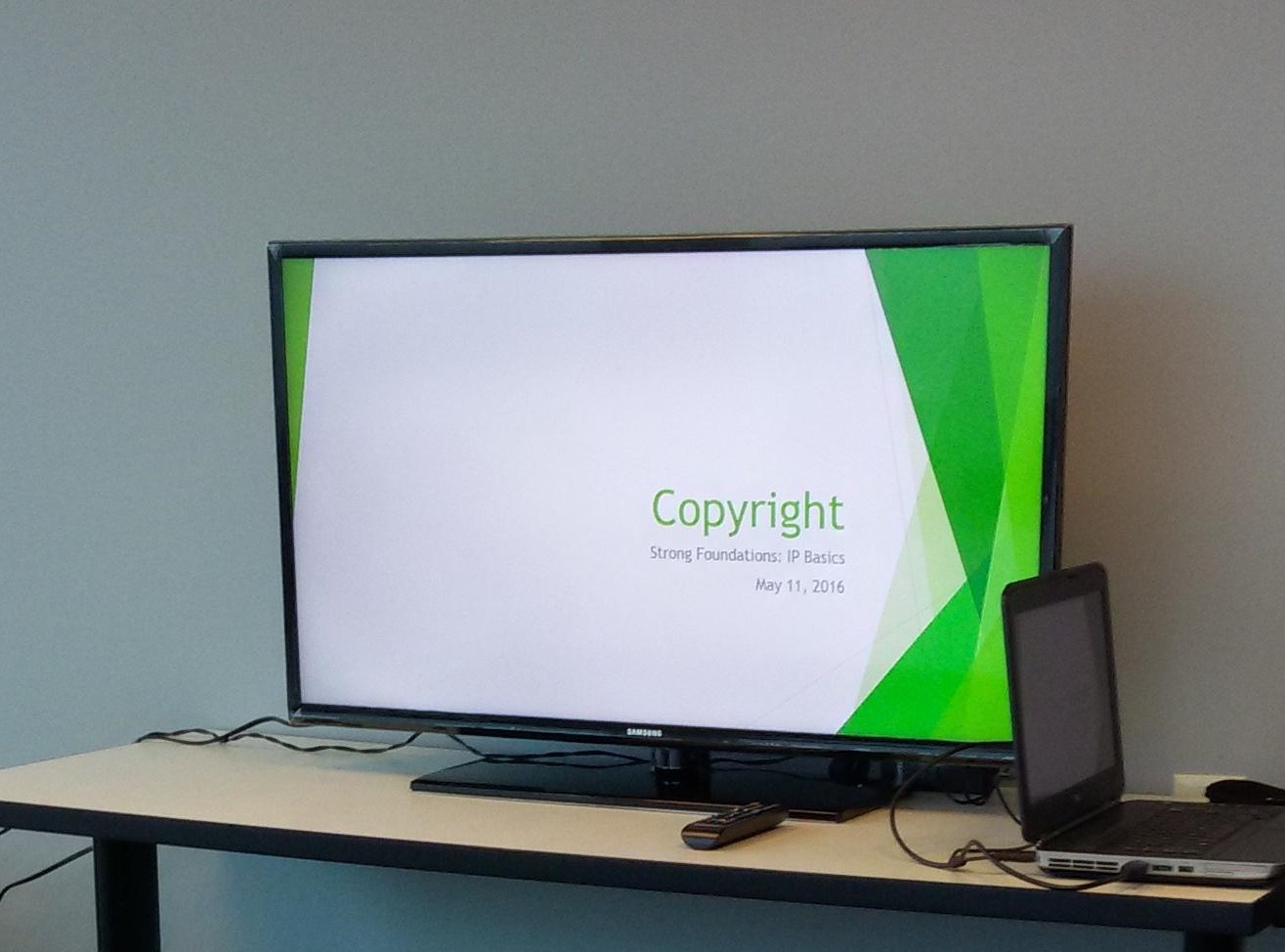I have already written about aspects of copyright law, but exactly is copyright protection? Copyright protects original works of authorship fixed in any tangible medium of expression. One way to think of it is it protects creative works that you can somehow see or hear again and again. Works of authorship include the following categories:
(1) literary works;
(2) musical works, including any accompanying words;
(3) dramatic works, including any accompanying music;
(4) pantomimes and choreographic works;
(5) pictorial, graphic, and sculptural works;
(6) motion pictures and other audiovisual works;
(7) sound recordings; and
(8) architectural works.
But remember, it has to be in a “tangible” medium. A live speech that isn’t recorded isn’t protected. The written speech or a recording of it is, however. Just like if you liked it then you should have put a ring on it, if you want to protect it, you should put it in a permanent form.
Copyright is the protection of the expression of an idea – not the idea or facts themselves. In fact, the law specifically excludes ideas, systems, etc.
In no case does copyright protection for an original work of authorship extend to any idea, procedure, process, system, method of operation, concept, principle, or discovery, regardless of the form in which it is described, explained, illustrated, or embodied in such work.
So what does that mean? It means that I am not the first person nor the last that will write about copyright. And in spite of the wonderful words that trip out from my fingers across the keyboard, I can’t prevent others from doing so. The fact that copyright exists and all of the fact of copyright are not protected about copyright. But my turns of phrase, clever examples, and other expressions of these facts, those are protectable.
So let’s use one of the hopefully clever examples. Let’s pretend I am writing a book about presidential debates. I want to use examples of past debates that went well for candidates and others that did not. Nixon’s sweaty forehead no doubt makes an appearance. Reagan’s refusal to “exploit” Mondale’s “youth and inexperience” needs to be addressed. But the past week should have already made it clear that everybody and their brother can talk about these past debates, and the next week will be sure to hammer it home that everyone can talk about last night’s debate. So those facts are free game to use. But how each author chooses to discuss the debates – their spin, analysis, and expression – that is the author’s property.
So go ahead and take to the Internet and write about how the debate went, how it stacked up against past debates, and what future candidates can learn from the experience. You can protect the words that you used to do so. Just be aware you won’t be the only one expressing their ideas regarding the debate. In fact, you may want to avoid social media for awhile for that very reason.


